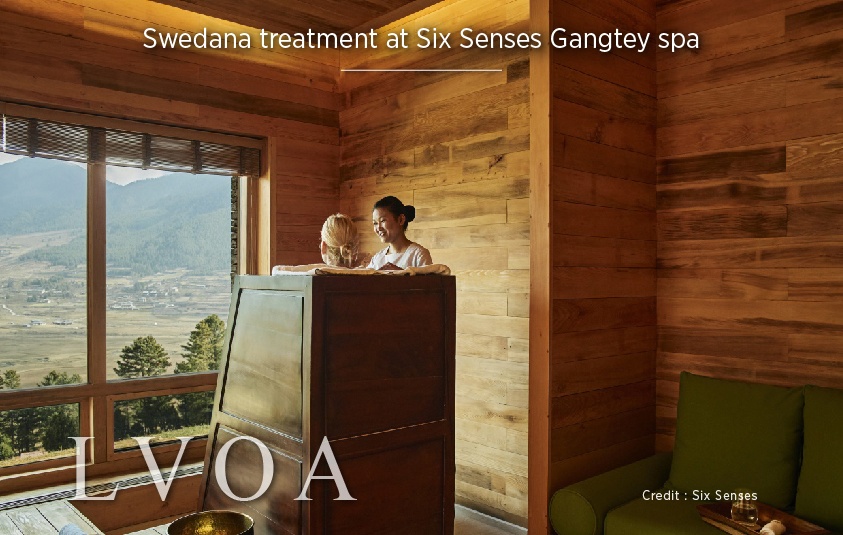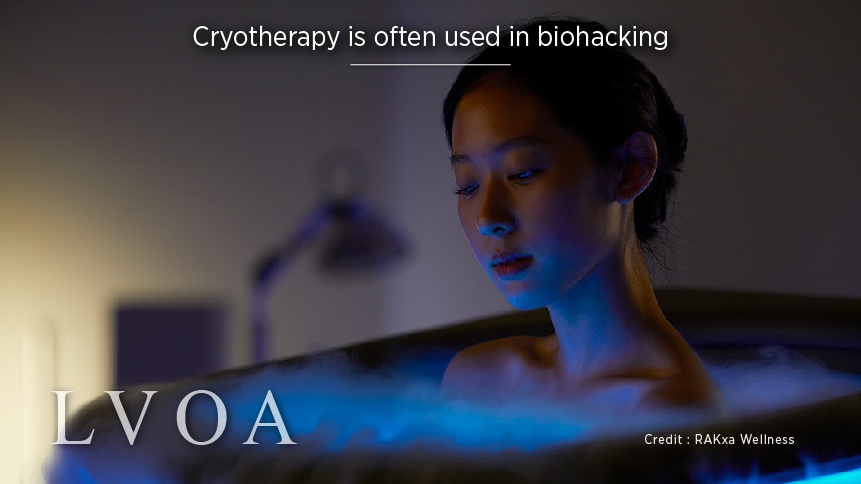Described as the fastest-growing wellness trend of the times, biohacking is a huge force in wellness right now. So, what exactly is biohacking, which players in the hospitality industry are offering biohacking services and treatments, and is it a trend that is here to stay?
What is biohacking?
Biohacking is all about hacking your way to become the best version of yourself physically and mentally, even spiritually. Coined by Silicon Valley, the terminology is definitely technology-focused, comparing the body and mind to a computer that can be “hacked.”
The self-proclaimed father of biohacking, David Asprey, describes the self-improvement trend as, “a systems-thinking approach to our own biology.” Combining pioneering scientific research with ancient holistic healing traditions, Asprey regularly touts his aim to live to 180 years old. His online courses are focused around “upgrading your life” through various biohacking techniques, from nutrition to utilising anti-ageing technology.
Of course, technically we’re all biohacking all of the time. When we eat, we adjust our diets to manipulate weight. We exercise to burn fat, gain muscle, increase fitness, and train our bodies. We meditate for the mental health benefits. However, what this new realm of biohacking in the wellness sphere pertains to is accelerating that, taking self-improvement to the next level. Being the best version of yourself. It’s not enough to simply maintain health anymore; biohackers are looking to go beyond and push the boundaries of what their bodies and minds are capable of.
Technology
Naturally, due to the focus on measuring success and treating the body like a machine, technology is playing a key role in biohacking. From diagnostic equipment that establishes a baseline (3D body scans, metabolic rates, ketosis analysis…) to high-tech treatments (brain photobiomodulation, AI adaptive cardio training, cyclic variation adaptive conditioning…), technology is at the forefront.
One of the world’s most advanced biohacking facilities, the Beverly Hilton hotel in LA, is home to Upgrade Labs – developed by David Asprey himself. Dubbed “the world’s first human upgrade center,” biohacking technologies include an electro-muscular stimulation machine, a state-of-the-art stationary bike that uses adaptive intelligence to personalise workouts and a high-tech compression system that stimulates lymphatic drainage.
Extreme temperatures
One popular activity often included under the umbrella of biohacking is exposing the body to extreme heat and cold, which is said to improve both physical and mental health.
Bangkok’s RAKxa Wellness, Thailand’s newest and arguably most advanced medical wellness facility, offers such treatments. In cryotherapy, the body is exposed to freezing dry air below -100 degrees Celsius – a temperature that destroys abnormal or diseased tissue. This is followed by 30 minutes in a hyperbaric tube, where concentrated oxygen speeds up the healing process. The experience is rounded out with a session in an infrared sauna, where electromagnetic waves help to detoxify and improve blood circulation.
IV drips
If the body is a machine, there are inputs and outputs. Nutrition is something that is heavily emphasised in biohacking, but another way to provide your body with what it needs is to put it directly into the bloodstream. IV drip bars have become incredibly trendy, not just as a novelty, but as fixtures in luxury hotels.
In November 2020, Anantara Siam Hotel Bangkok opened Vivid by Verita Health, the city’s first IV drip bar in a five-star hotel. The cocktail menu of vitamins and nutrients are said to provide instant cellular rejuvenation, mental clarity, boosted immunity, anti-ageing properties, as well as increased metabolism. Blends are concocted based on common ailments, such as fatigue, jetlag, and hangovers.
Ancient practices
Merging new and old knowledge, other biohacking techniques are rooted in holistic practices and ancient traditions. Biohacker Alberto Villoldo, who created Six Senses’ Grow a New Body program, describes how shamans knew the key to longevity: “Shamans of old discovered that they could hack the biofield to live long and healthy lives, get their health span to equal their life span, and free their consciousness from their body.”
Six Senses, a brand known for its wellness expertise, has incorporated biohacking into many of its properties, emphasising aspects of the trend that reflect the locations of the retreats. Six Senses New York is more focused on biohacking technology, whereas Six Senses’ Bhutan locales have a more spiritual approach, and India’s Six Senses Fort Barwara makes use of Ayurvedic healing.

Improving chronic conditions
Biohacking is not just for the healthy looking to improve longevity. It’s also a useful tool for those who suffer from chronic diseases and health conditions, such as diabetes. Vivamayr clinic in Maria Wörth, Austria is one such medical wellness facility that boasts an extensive biohacking menu, including a specialised Vivamayr Diabetes Program, aimed at those with prediabetes and type 2 and 1 diabetes.
The program entails base medical services, from functional myodiagnostics to nutritional counselling, which informs tailored treatments, such as EMS (electrical muscle stimulation), cryotherapy, aquabiking, and IHHT hypoxy training, to name but a few options. These treatments improve metabolism, helping to prevent, overcome, or alleviate symptoms of diabetes.
Biohacking as an ongoing trend
Biohacking was already climbing in popularity pre-pandemic, but the last couple of years have definitely added to its appeal. Covid-19 blurred the lines between hospitality and hospitals, holistic wellbeing and medical wellness, and all the time spent in isolation wreaked havoc on physical and mental health.
Borrowing from the digital vocabulary of the trend, perhaps hacking is what’s needed as a remedy for this virus. Definitely for the foreseeable future, biohacking looks to be the solution that people are looking for to improve their health and quality of life.







